ART CITIES: N.York-Vija Celmins
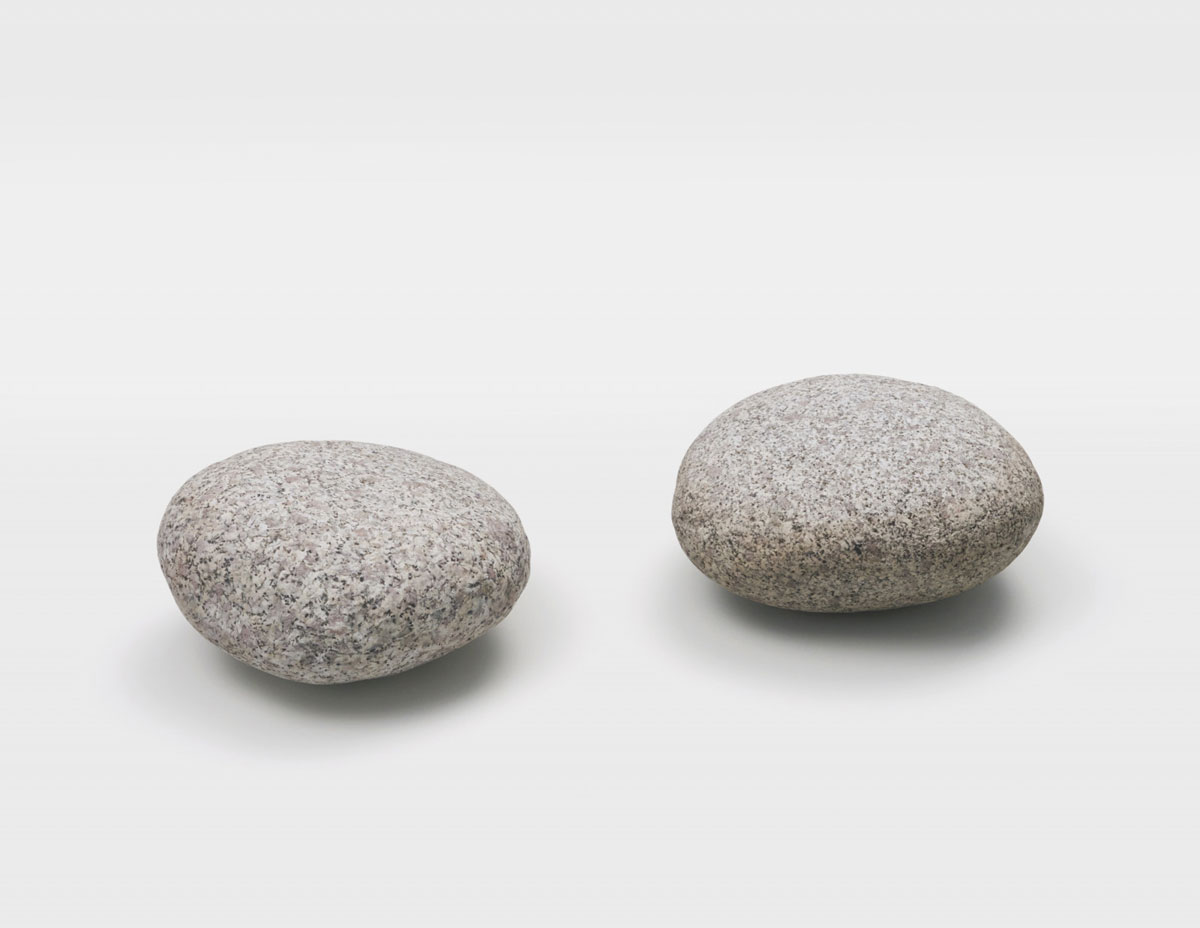 Vija Celmins has long been admired for her meticulous renderings of natural imagery, including ocean waves, desert floors, and night skies. Her paintings, sculptures, drawings, and prints depict scenes that are too vast or mercurial to be fixed in the mind’s eye. She first became interested in representing the visible world during the early 1960s, when she began to paint the objects in her Los Angeles studio before turning her attention to photographs found in magazines and history books.
Vija Celmins has long been admired for her meticulous renderings of natural imagery, including ocean waves, desert floors, and night skies. Her paintings, sculptures, drawings, and prints depict scenes that are too vast or mercurial to be fixed in the mind’s eye. She first became interested in representing the visible world during the early 1960s, when she began to paint the objects in her Los Angeles studio before turning her attention to photographs found in magazines and history books.
By Dimitris Lempesis
Photo: Matthew Marks Gallery Archive
Vija Celmins’, “Winter”, her first exhibition of new work in six years includes nine paintings, four sculptures, and one print. The work in Celmins’s exhibition is somber, poetic, and dark. The artist says she was “thinking about winter in all its implications”. The new paintings continue her long-time interest in using imagery from nature, as well as her long relationship with the absence of color. “Snowfall (blue)” (2022–24), a 259 cm tall canvas that is the largest painting she has ever made, depicts snow falling against the night sky. In “Snowfall (coat)” (2021–23), which is based on an image of snow collecting on the back of a coat, the dark ground provides a false allusion to the sky. The image, however, is not Celmins’s primary interest. “Art is not an illustration, it is an invention,” she says. “The paintings have an internal feeling, as if there were something behind what you see”. The scrutiny of Celmins’s gaze is perhaps most evident in her objects. The exhibition includes a stone piece originally picked up in the California desert, cast in bronze in 1977 and then abandoned until 2020, as well as two new rope sculptures made from painted cast steel inspired by an old coil of sailing rope. “Cane” (2023) is made from painted bronze, the prickled surface meticulously painted to look like the rose branch on which it is based. Describing how she makes her sculptures, Celmins has said, “I developed a touch that you could hardly tell was a touch”. Vija Celmins was born in Riga, Latvia, and she immigrated to the United States at the age of 10, settling in Indiana with her family. In 1962, Celmins graduated with a BFA from the John Herron Art Institute, Indianapolis, and then went on to study at the University of California, Los Angeles, where she received an MFA in 1965. She then got a position as an instructor at the California State College, Los Angeles, from 1965 to 1966, before moving onto the University of California, Irvine, for the same position in 1967. She taught at the latter school for the next five years. Celmins gained international recognition very early in her career when, with an uncanny attention to detail and accuracy, she made renditions of natural scenes based on photographs lacking points of reference, depth of field, and horizons. Celmins has mastered the art of painting in different media, such as charcoal and oil, and several printmaking processes. Most of her earlier works are paintings of everyday objects like lamps, TVs, and black and white photographs. These paintings appear random, an effect that Celmins shares with Gerhard Richter. Most of her recent works, however, are mostly intense and realistic drawings, although she still produces detailed paintings of the natural environment. Lately, her subjects have become very selective, focusing mostly on night skies, oceans, and deserts.
Photo: Vija Celmins, Two, 1977/2024, One found object and one made object: powder pigment and binder on bronze, with artist’s pedestal, Each: 5½ × 12 × 12 inches; 14 × 31 × 31 cm, © Vija Celmins, Courtesy the artist and Matthew Marks Gallery
Info: Matthew Marks Gallery, 522 West 22nd Street, New York, NY, USA, Duration: 15/2-6/4/2024, Days & Hours: Tue-Sat 10:00-18:00, https://matthewmarks.com/
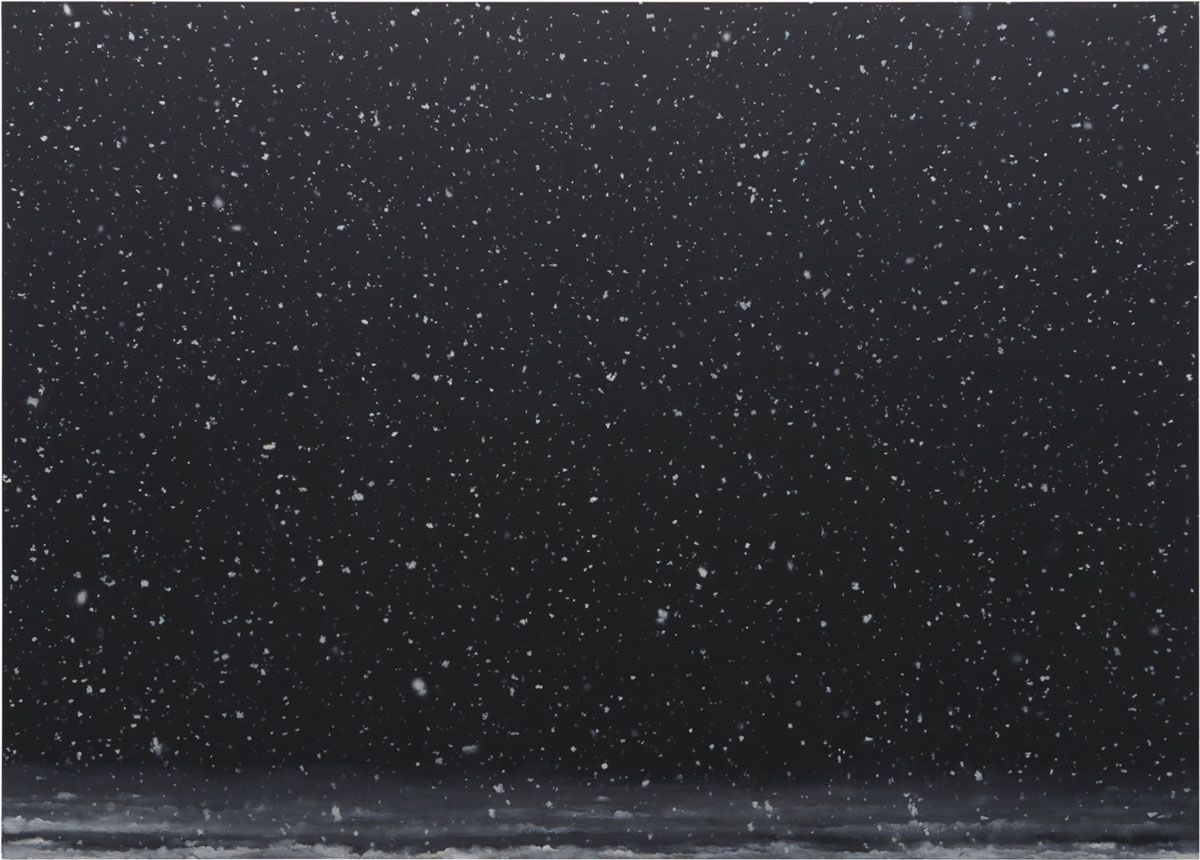
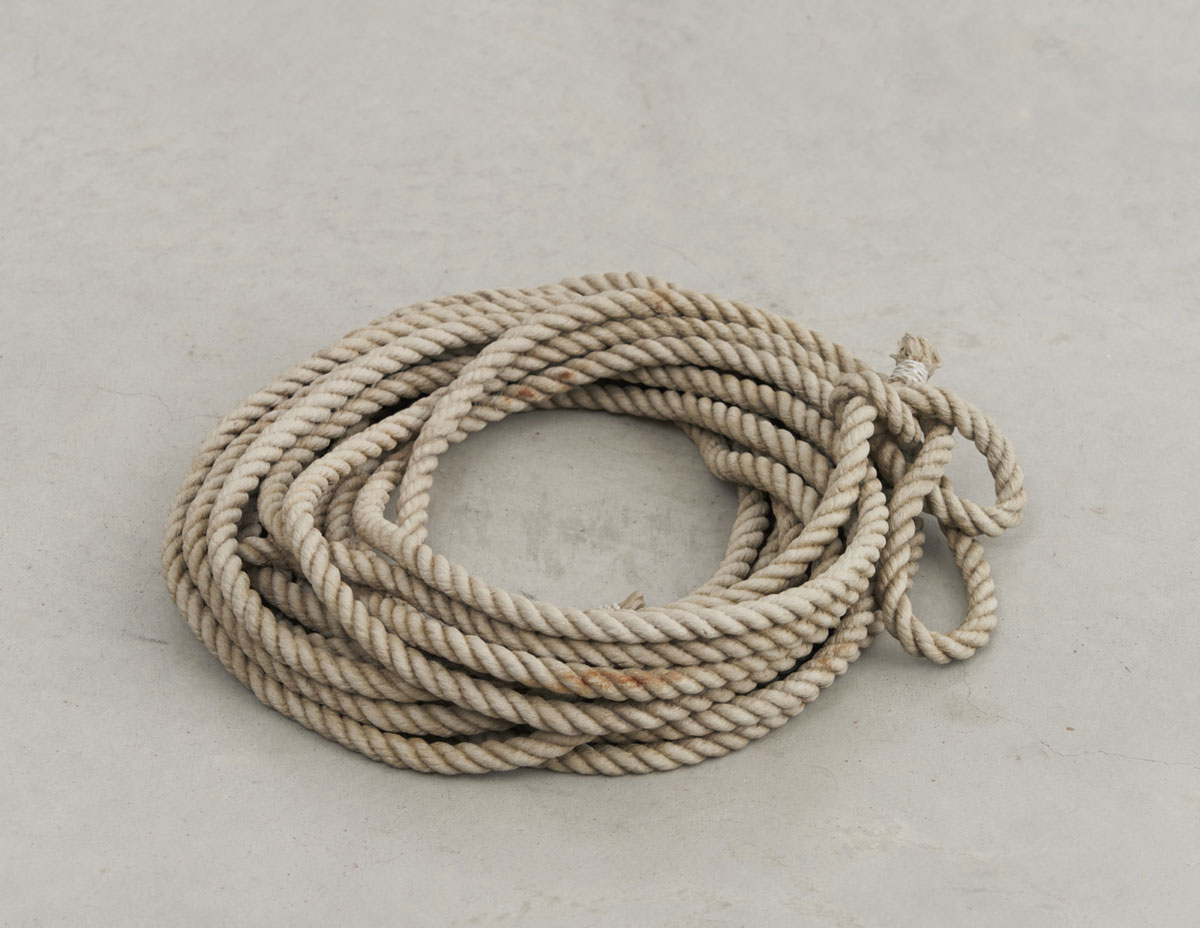

Right: Vija Celmins, Cane, 2023, Cast bronze, alkyd paint, 67⅝ × 1 × 1 inches; 172 × 3 × 3 cm, © Vija Celmins, Courtesy the artist and Matthew Marks Gallery
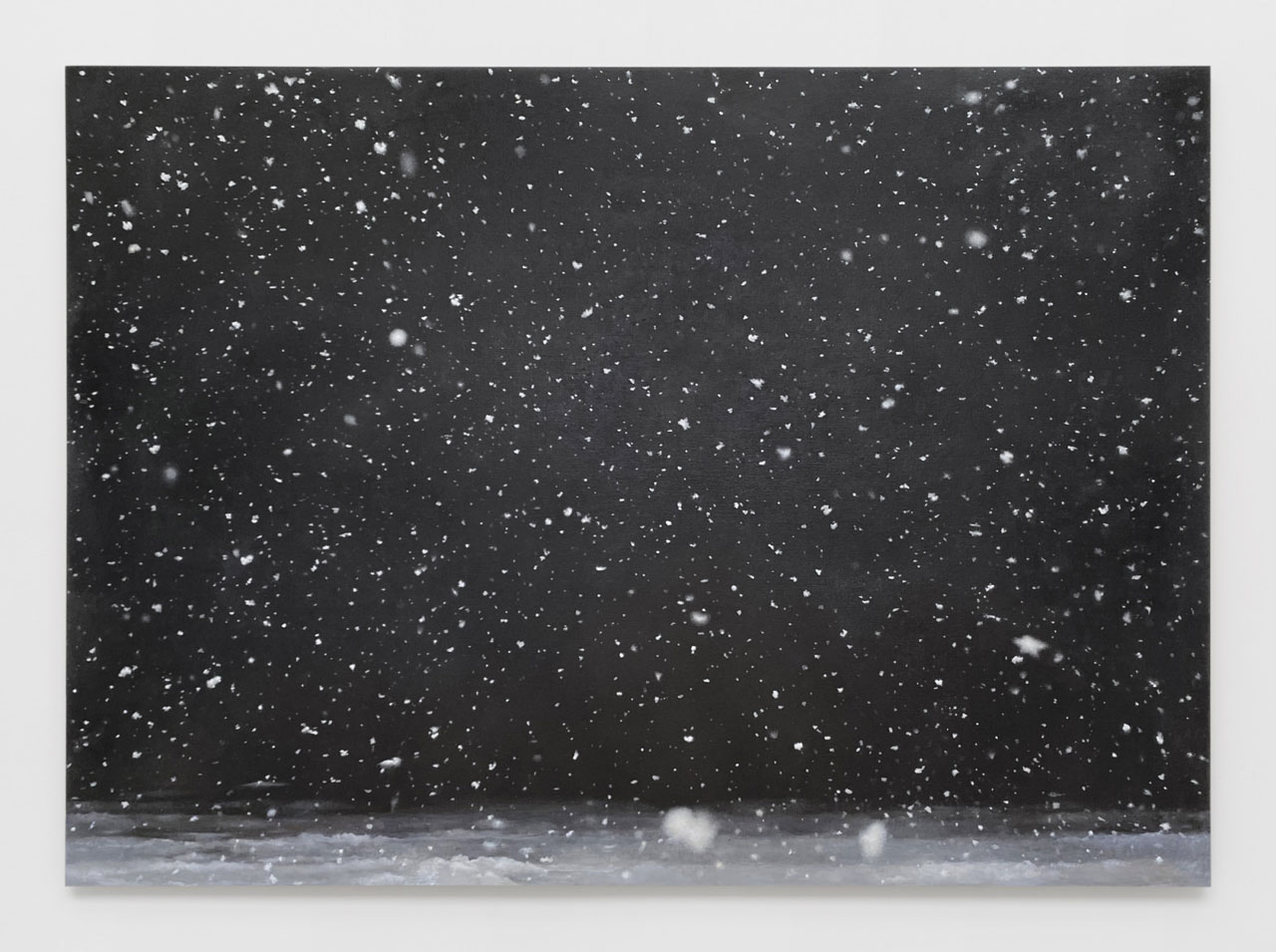
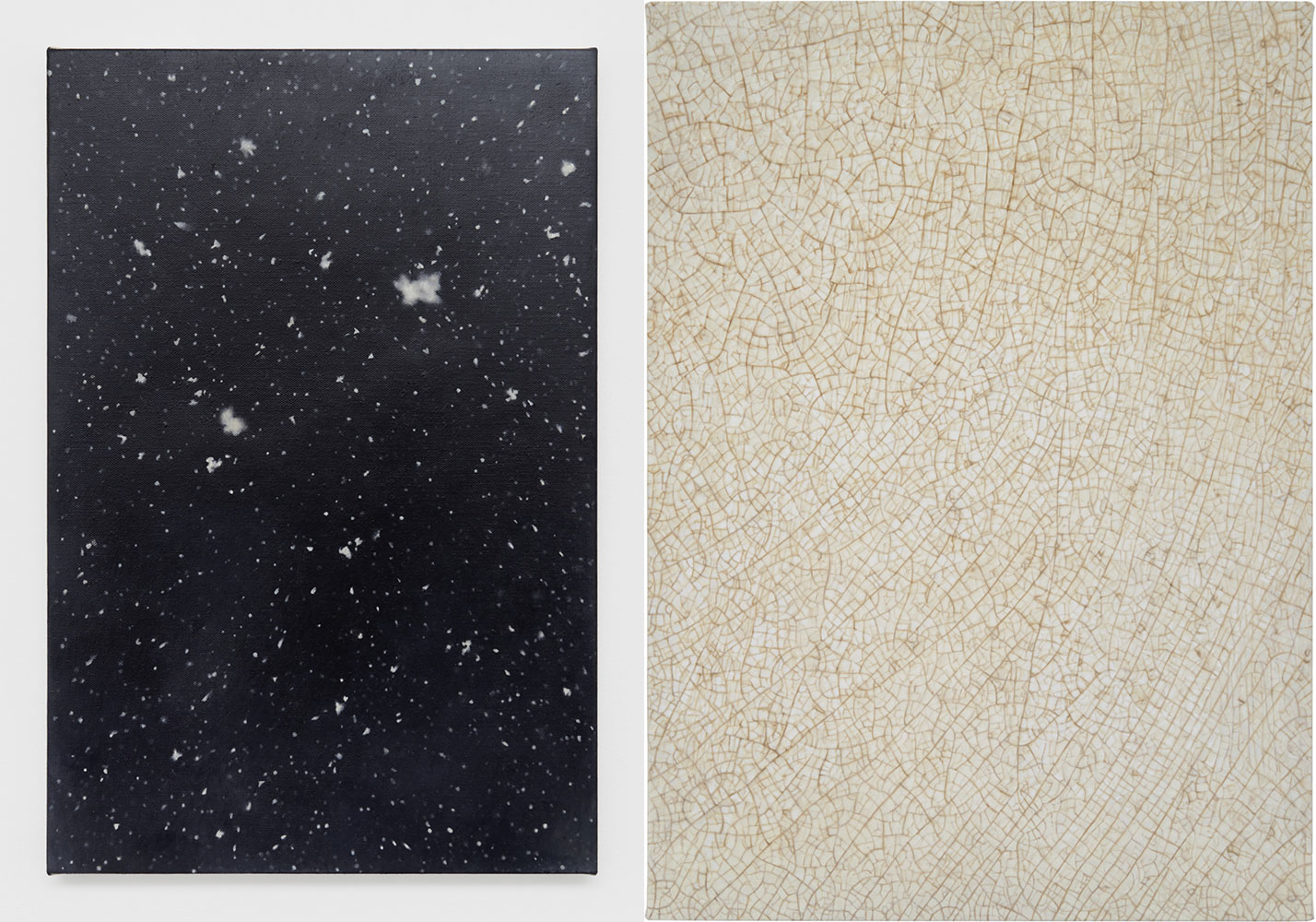
Right: Vija Celmins, Plate, 2013–23, Oil on linen, 18 × 13¼ inches; 46 × 34 cm, © Vija Celmins, Courtesy the artist and Matthew Marks Gallery
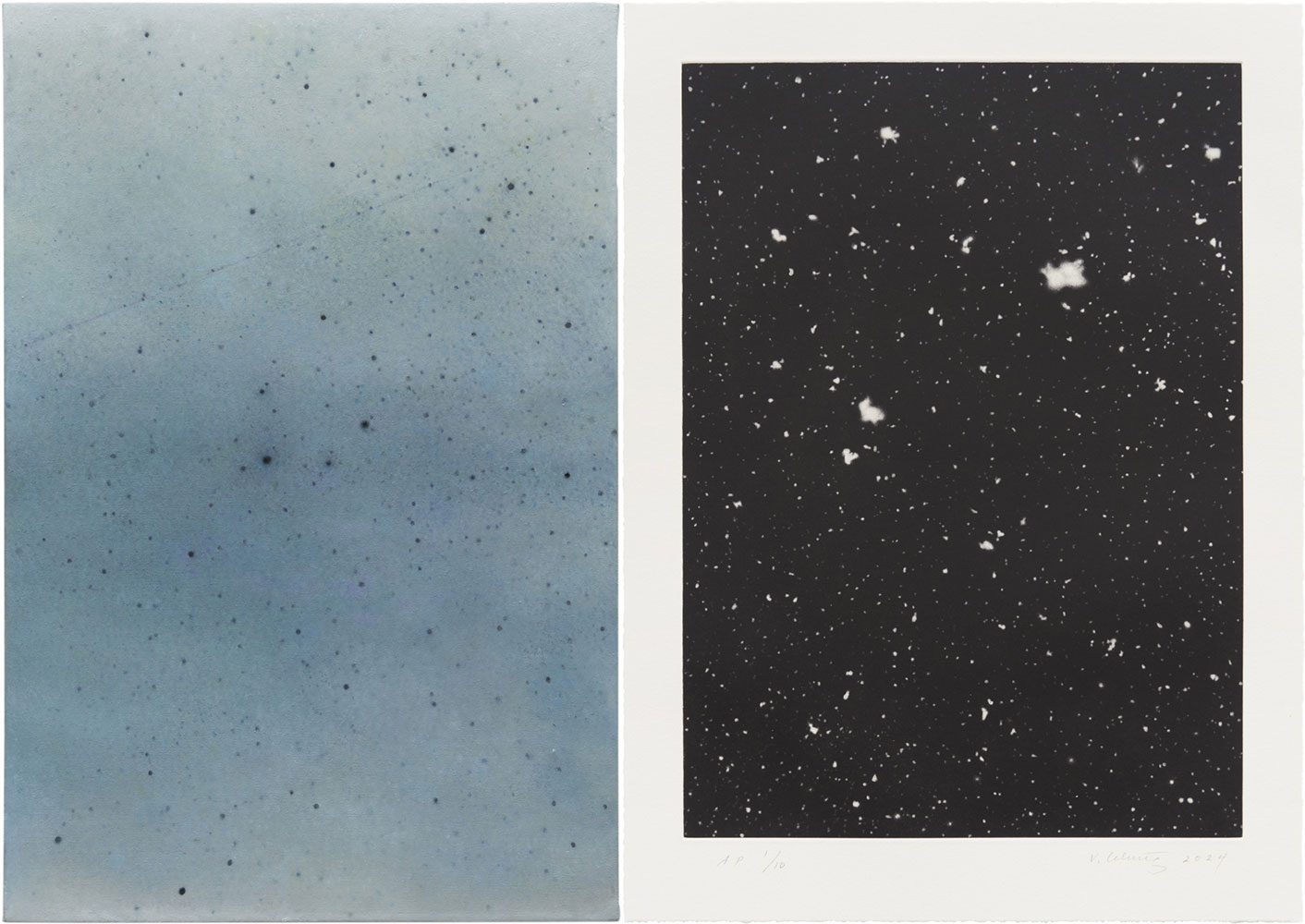
Right: Vija Celmins, Untitled (snow), 2024, Mezzotint, Image: 16⅝ × 12 inches; 42 x 31 cm, Sheet: 19⅝ × 14½ inches; 50 x 37 cm, © Vija Celmins, Courtesy the artist and Matthew Marks Gallery
